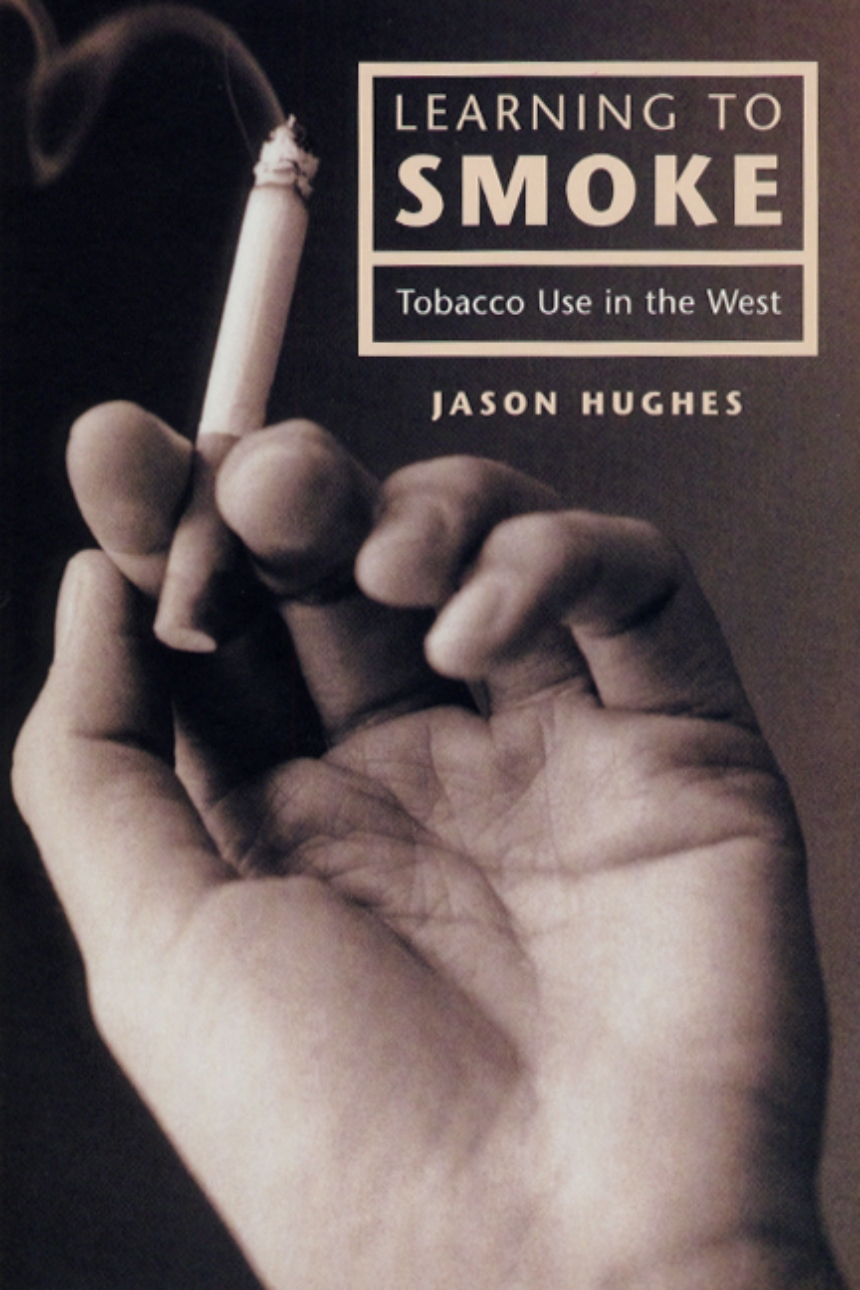Learning to Smoke
Tobacco Use in the West
Why do people smoke? Taking a unique approach to this question, Jason Hughes moves beyond the usual focus on biological addiction that dominates news coverage and public health studies and invites us to reconsider how social and personal understandings of smoking crucially affect the way people experience it. Learning to Smoke examines the diverse sociological and cultural processes that have compelled people to smoke since the practice was first introduced to the West during the sixteenth century.
Hughes traces the transformations of tobacco and its use over time, from its role as a hallucinogen in Native American shamanistic ritual to its use as a prophylactic against the plague and a cure for cancer by early Europeans, and finally to the current view of smoking as a global pandemic. He then analyzes tobacco from the perspective of the individual user, exploring how its consumption relates to issues of identity and life changes. Comparing sociocultural and personal experiences, Hughes ultimately asks what the patterns of tobacco use mean for the clinical treatment of smokers and for public policy on smoking. Pointing the way, then, to a more learned and sophisticated understanding of tobacco use, this study will prove to be essential reading for anyone interested in the history of smoking and the sociology of addiction.
Hughes traces the transformations of tobacco and its use over time, from its role as a hallucinogen in Native American shamanistic ritual to its use as a prophylactic against the plague and a cure for cancer by early Europeans, and finally to the current view of smoking as a global pandemic. He then analyzes tobacco from the perspective of the individual user, exploring how its consumption relates to issues of identity and life changes. Comparing sociocultural and personal experiences, Hughes ultimately asks what the patterns of tobacco use mean for the clinical treatment of smokers and for public policy on smoking. Pointing the way, then, to a more learned and sophisticated understanding of tobacco use, this study will prove to be essential reading for anyone interested in the history of smoking and the sociology of addiction.
209 pages | 2 tables | 6 x 9 | © 2002
History: American History
Law and Legal Studies: Law and Economics
Sociology: Collective Behavior, Mass Communication, Criminology, Delinquency, Social Control, Social History
Reviews
Table of Contents
Preface
Acknowledgments
Introduction: Why People Smoke: A Question for Sociologists?
1. Tobacco Use among Native American Peoples
2. Tobacco Use and Humoral Bodies: The Introduction of Tobacco into Britain and Other Parts of Europe
3. Tobacco Use and Clinical Bodies: Tobacco Usw in the Twentieth-Century West
4. Becoming a Smoker
Conclusion
References
Index
Acknowledgments
Introduction: Why People Smoke: A Question for Sociologists?
1. Tobacco Use among Native American Peoples
2. Tobacco Use and Humoral Bodies: The Introduction of Tobacco into Britain and Other Parts of Europe
3. Tobacco Use and Clinical Bodies: Tobacco Usw in the Twentieth-Century West
4. Becoming a Smoker
Conclusion
References
Index
